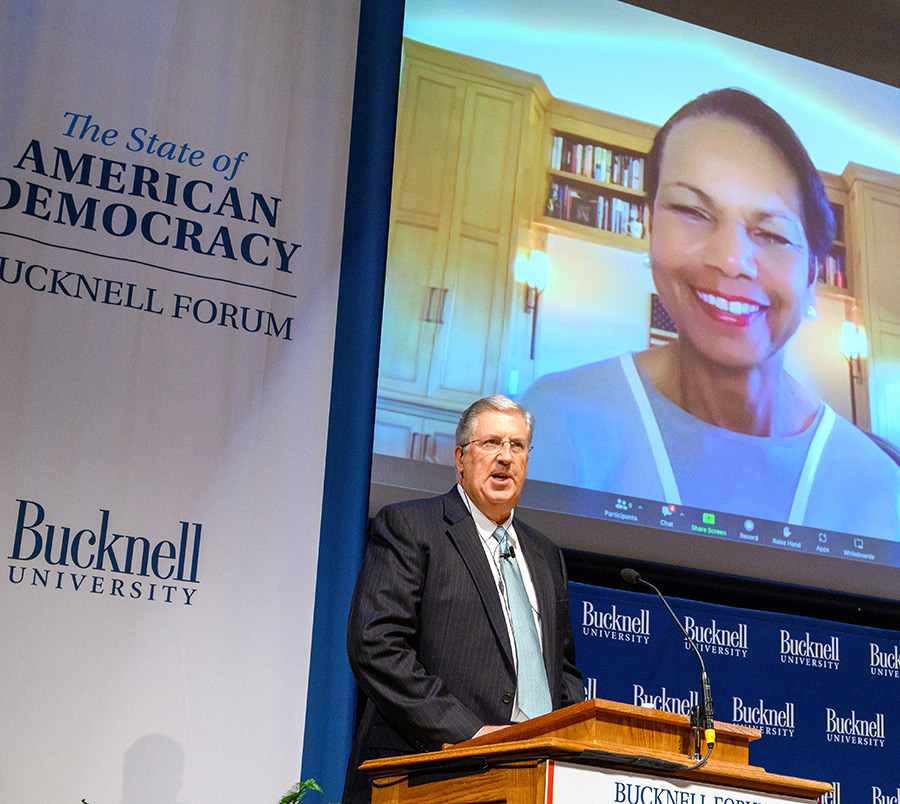speaker series
Condoleezza Rice Addresses ‘The State of American Democracy’
JUST TWO DAYS after the 21st anniversary of 9/11, Condoleezza Rice — the national security advisor to President George W. Bush when the terrorist attacks of Sept. 11, 2001, took place — appeared via Zoom in a Weis Center for the Performing Arts discussion with her friend and former Stanford University colleague, President John Bravman, to kick off the return of the Bucknell Forum speaker series.
Rice, now the Tad and Dianne Taube Director of the Hoover Institution, the Denning Professor in Global Business and the Economy at the Stanford Graduate School of Business, and a professor of political science at Stanford University, told a captivated audience how those attacks changed American national security for good. The hourlong discussion also touched on her time in office, the nation’s political polarization, Russia’s threat to the U.S. and education reform.
The first female African American secretary of state and first woman to serve as national security advisor, Rice opened the program saying “the state of American democracy is not as we would like it to be.” She then cited three elements that cause her concern.


Rice expressed a second concern that many Americans now find “the American dream” beyond reach. She cited the lack of quality education for the nation’s poorest children as a root cause of that deterioration. Rice called the nation’s polarization, or “increased tribalism,” her third concern.
“There’s a tendency to go to our corners — to hang out metaphorically, particularly on social media — with those who think like us, those who say what makes us comfortable,” she said. “[We have] difficulty engaging with those who think differently, and when we do, we seem to get into yelling matches rather than recognize there can be different sides to an issue.”
Ultimately, Rice said she remains optimistic about the country’s ability to resolve its current political differences. “I do believe our institutions are pretty strong,” she said. “They survived the Civil War, and they survived January 6.”
Rice was the first of five nationally renowned speakers who will discuss “The State of American Democracy” in this year’s Bucknell Forum — a speaker series that since 2007 has featured national leaders, scholars and commentators examining various issues from multidisciplinary and diverse viewpoints. Remaining speakers will appear in person on the following dates:
- Jake Tapper, journalist, author, cartoonist and lead Washington anchor for CNN, on Wednesday, Nov. 30.
- John Kasich, former Republican governor of Ohio, and David Axelrod, former senior adviser to President Barack Obama, both senior political commentators at CNN, on Tuesday, Feb. 28.
- Barbara F. Walter ’86, author of the New York Times bestseller How Civil Wars Start (and How to Stop Them), on Tuesday, April 4.
